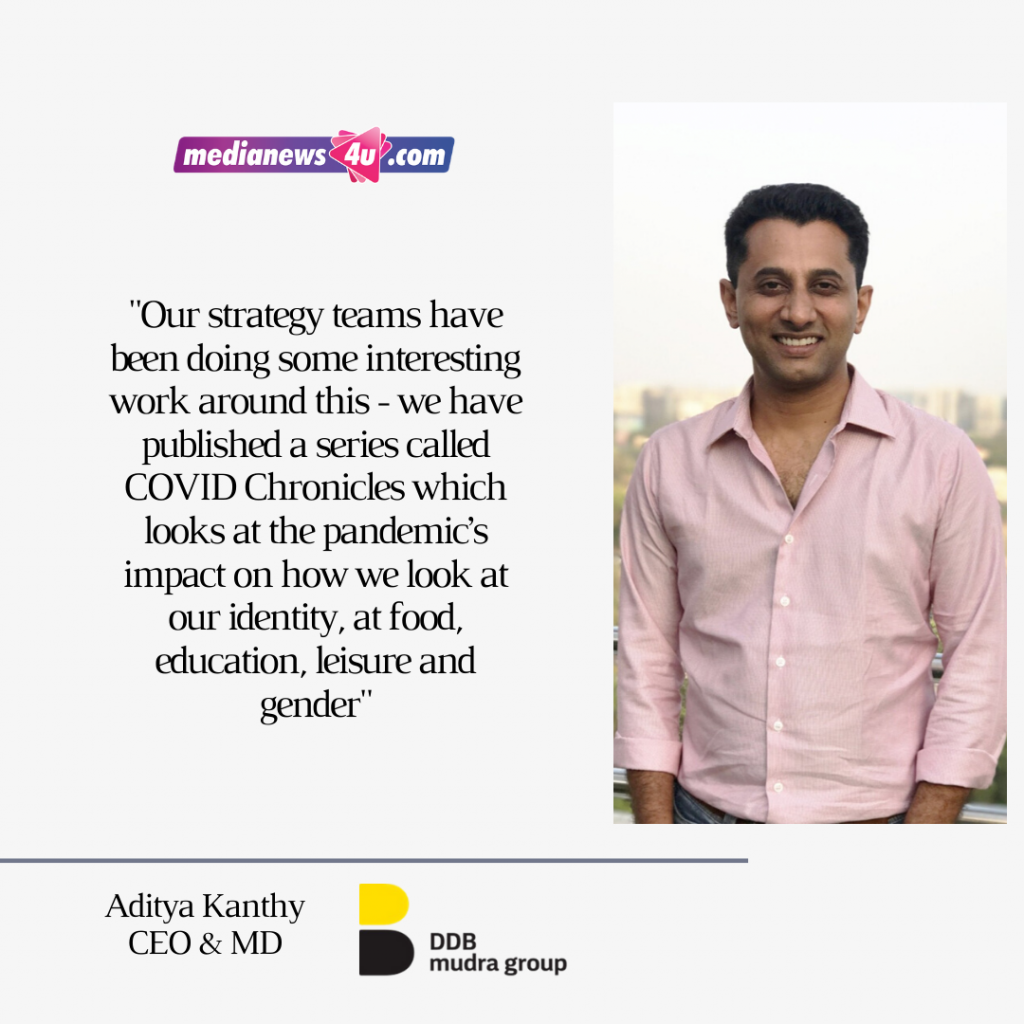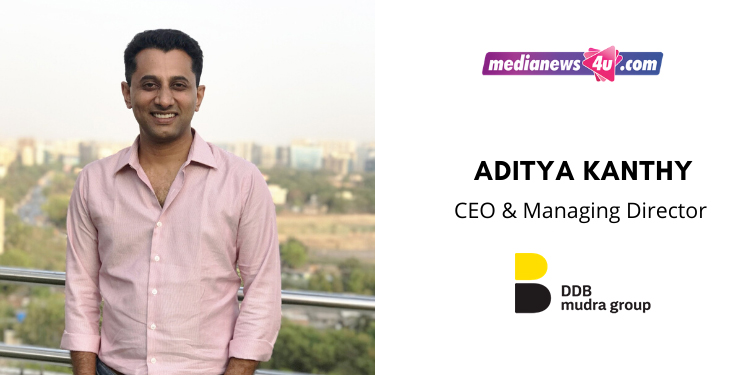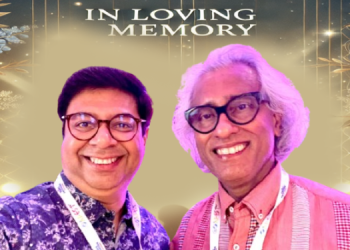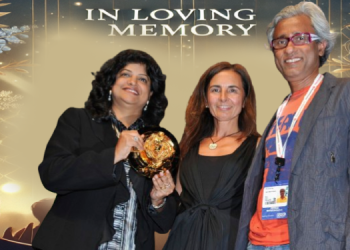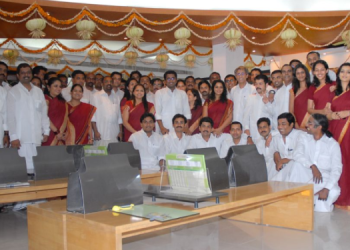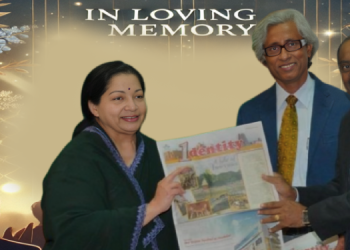It has been 90+ days since the country went into lockdown mode due to the pandemic. The recent outbreak of the COVID – 19 is also seeing a tectonic shift in most people’s lives. There are so much stress and anxiety about job losses, loneliness, and other factors. But this lockdown has also changed the way organizations are thinking, the way they work, etc.
The outbreak of covid-19 is bound to make some significant and everlasting change in the way brands communicate with their consumers and their stakeholders.
We at Medianews4u spoke to Aditya Kanthy – Group CEO & Managing Director, DDB Mudra Group, Aditya has the privilege of leading some of the most talented people in India’s creative industry. As a leader Aditya believes diversity and inclusion are not optional to build an organization capable of delivering exceptional business growth.
It has been 90+ odd days since the lockdown, how are you coping and boosting the morale of your team?
The last few weeks have been tough. It has meant a change in perspective for all of us and has forced us to take stock of what truly matters – both as people and as a business. What makes it easier is that I am privileged to work with some of the most talented and passionate people in the industry. As I have said before, creative companies need more than a basic engagement plan. Creativity often thrives when people share a space together – when there is a give and take of ideas, of conversations, of opinions and opposing thought processes. It is difficult to replace the creativity that can come out of true human connection which often relies on physical presence and social connection. But, creativity is also the very thing that can make us stronger right now – for our people to have a creative outlet, to feel that their creativity can make an impact in the world and to see the finished product do well and be appreciated is key to keeping morale high.
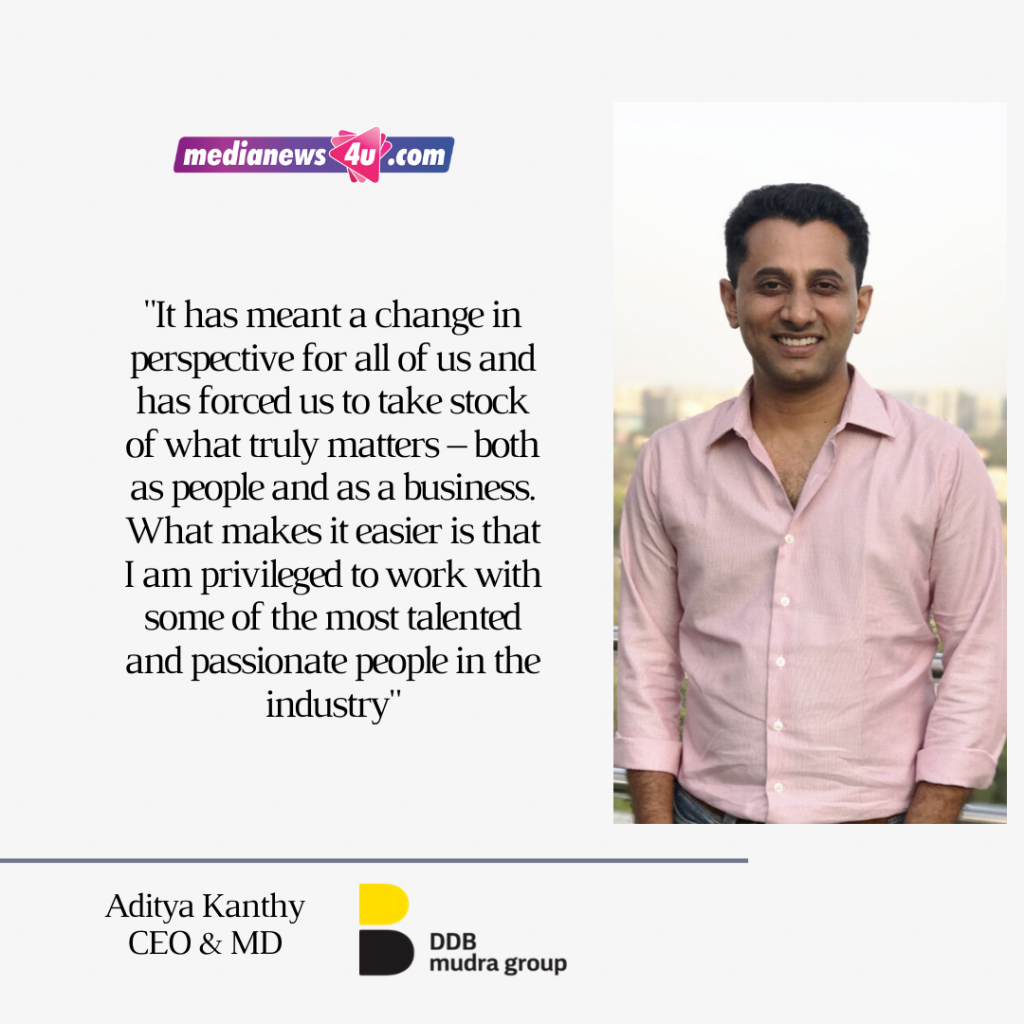
Over the last few weeks we have done some pretty good work including launching Disney+ online during the lockdown – creating work that involved shooting films with kids and influencers remotely which is difficult to do in the best of times. Some of our young creative talent at 22feet Tribal WW have designed campaigns that have been selected by the UN COVID-19 Response Creative Content Hub, a joint initiative of the UN and the WHO, to help fight COVID-19. 22feet Tribal WW has created ‘Covid in Context’ – a data tool that helps bring a deeper context to conversations around COVID-19. I believe all this goes a long way in helping people feel a sense of fulfilment from a professional point of view.
Beyond work, we have also been using all the tools at our disposal to help people stay connected. We have had our people step up and be there for each other, whether it is through video calls for quick catch-ups or coming together for some light-hearted entertainment. Along with everything else that we are doing, we have an employee assistance program with experts that we can lean on who offer our employees 24×7 confidential mental health services.
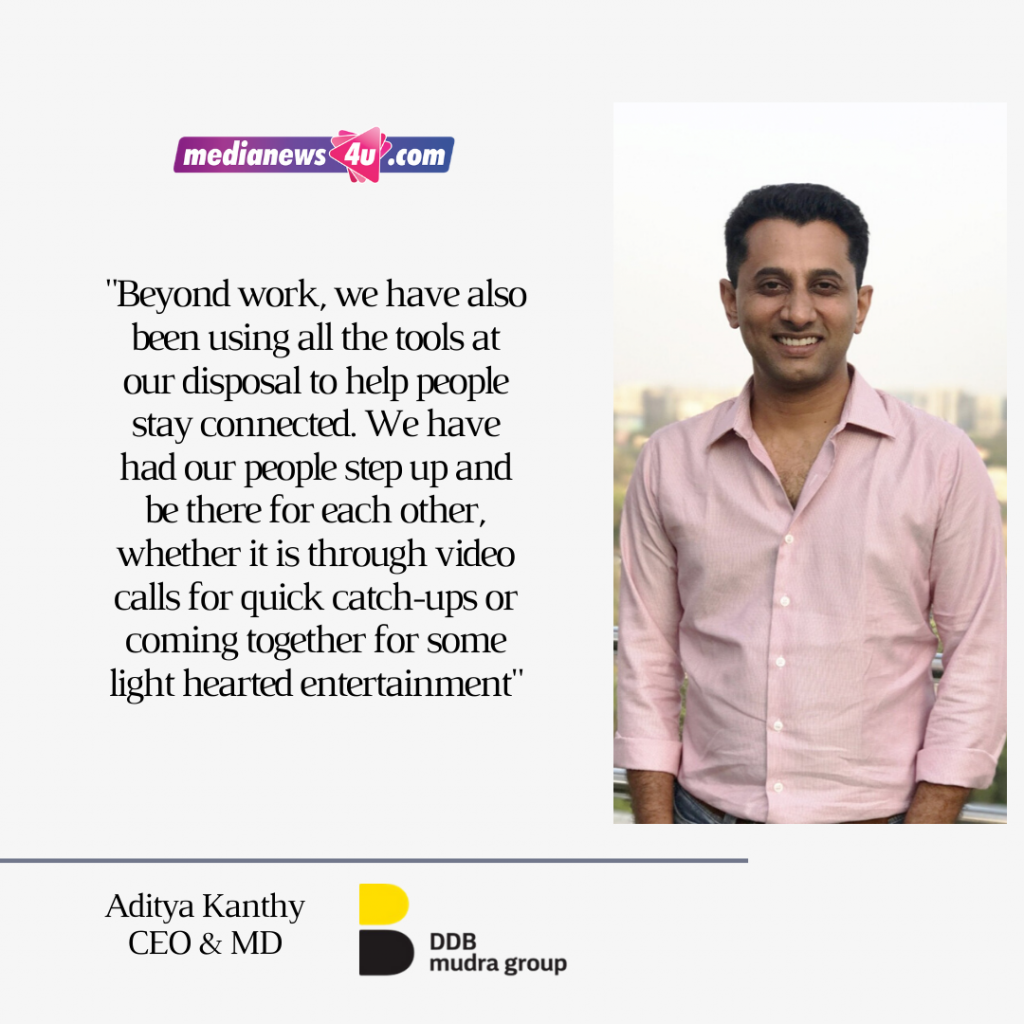
Considering DDB Mudra handles some major clients across sectors, what are your way forward strategies for them?
COVID-19 and the economic fallout of the pandemic has hit all of our clients. Unlike a normal recession, they have to deal with both supply as well as demand-side disruptions to their businesses and there is no telling when the situation will improve, much less improve drastically. We have been putting all of our tech, strategic and creative capabilities behind helping our clients navigate this through both short-term strategies to help them cope and pivot as well as medium to long-term strategies to ensure that their brands come out strong.
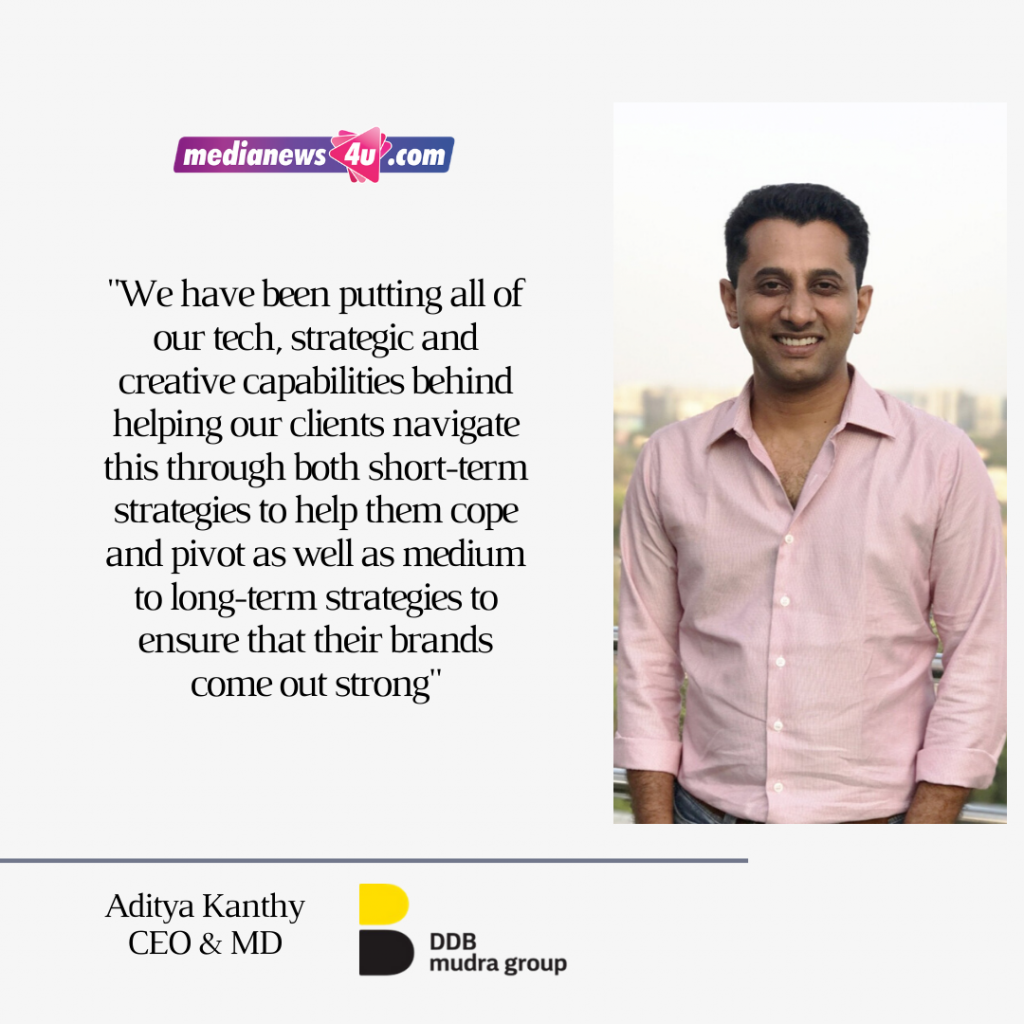
We have been proactively working with our clients to figure out how we can use digital transformation to help them disrupt their long standing models and help them deal with the business impact of a months-long lockdown as well as engaging them in the long-term process of going back to the basics of building and strengthening their brands. One of the strategies has been to double down on purpose-led work such as the work we have done for Stayfree re-iterating the brand’s ambition of not letting periods get in the way of young girls’ dreams of progress or the work we have been doing for Delhi Airport, helping them engage with their customers by using social media as a service – disseminating information and addressing between 15000-20000 queries a day from people during the lockdown.
What is the strategy for DDB Mudra to stay ahead of the curve?
This is the time for quick, decisive action. Our strategy has been to focus on dealing with the revenue-side realities of all aspects of our business and putting into motion actions to mitigate them. We also have to ensure that while doing so and bringing our costs in line with our revenue realities, we continue to protect and invest in our people. We have been using this time to upskill our people with the tools they will need to succeed in an altered world through DDBNext – a future-facing training program. We are also continuing our focus on new business and on gaining additional streams of revenues through organic growth.
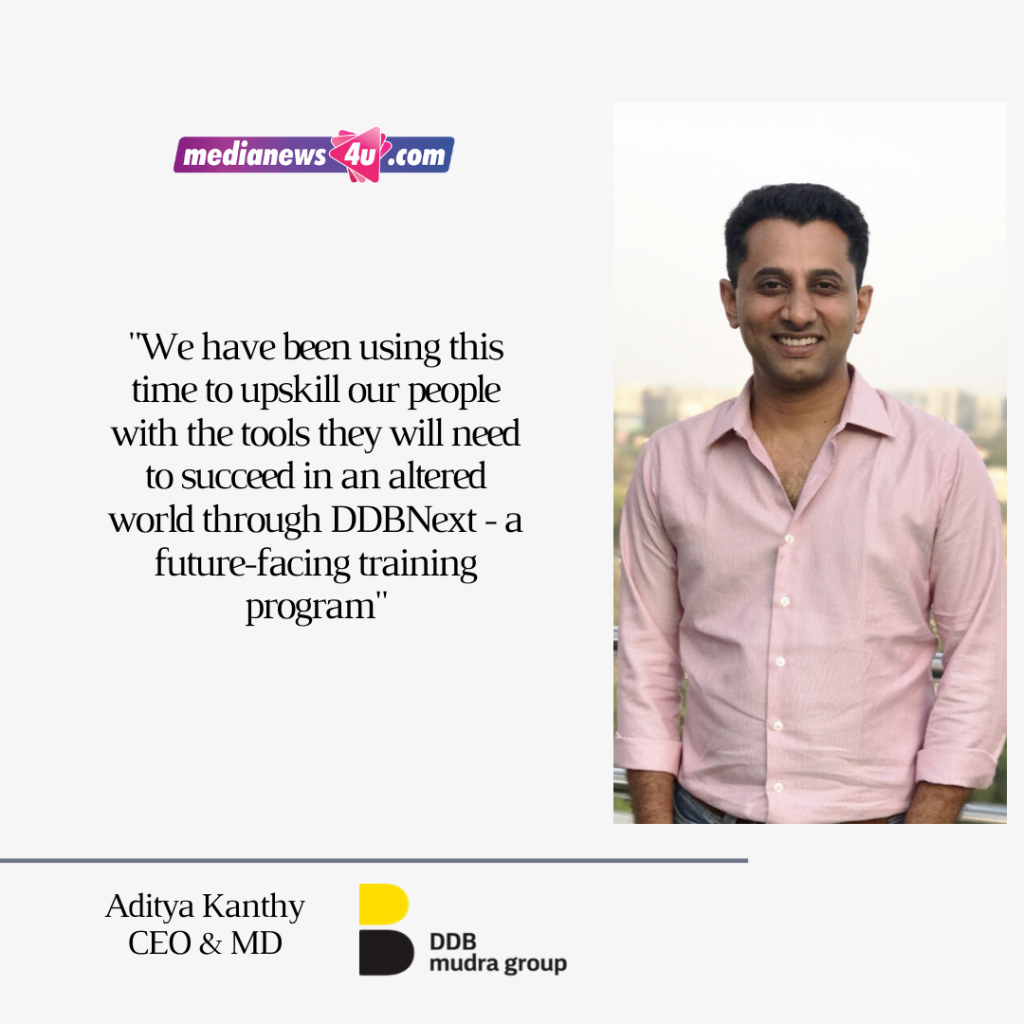
I think our strategy echoes that of our client strategies in some ways, in that we have to find a balance between concentrating on the basics and the need to change. This challenge exists in all aspects of a creative company – in balancing the push towards digital transformation with the importance of insights and storytelling in our creative output, in re-imagining how our physical infrastructure will look like in the future – just because people are now used to working from home, does that mean a shared physical space is not important, in how we train our people, in how we produce our work and in re-framing what the possibilities are when it comes to production.
Globally, we are seeing an economic slowdown. How are you envisaging India’s ADEX growth Post COVID-19?
It is very difficult to predict anything at this point because we don’t know what a post-COVID-19 world will look like or what the shape of the economy will be when that happens. We have seen viewership numbers rise quite dramatically during the lockdown without ad expenditures growing proportionately. ADEX still remains much lower than Pre Covid-19 even as the country reopens and life tries to limp back to normalcy. While we can expect some categories like FMCG, Healthcare, Financial services, Entertainment and E-commerce to increase spending over the next quarter, categories that have been the worst hit such as travel, aviation and allied industries might take longer to bounce back. This situation might also mean that marketers will be re-imagining their media plans with a heavier focus on digital media so we might expect to see a considerable uptick in digital media spends.
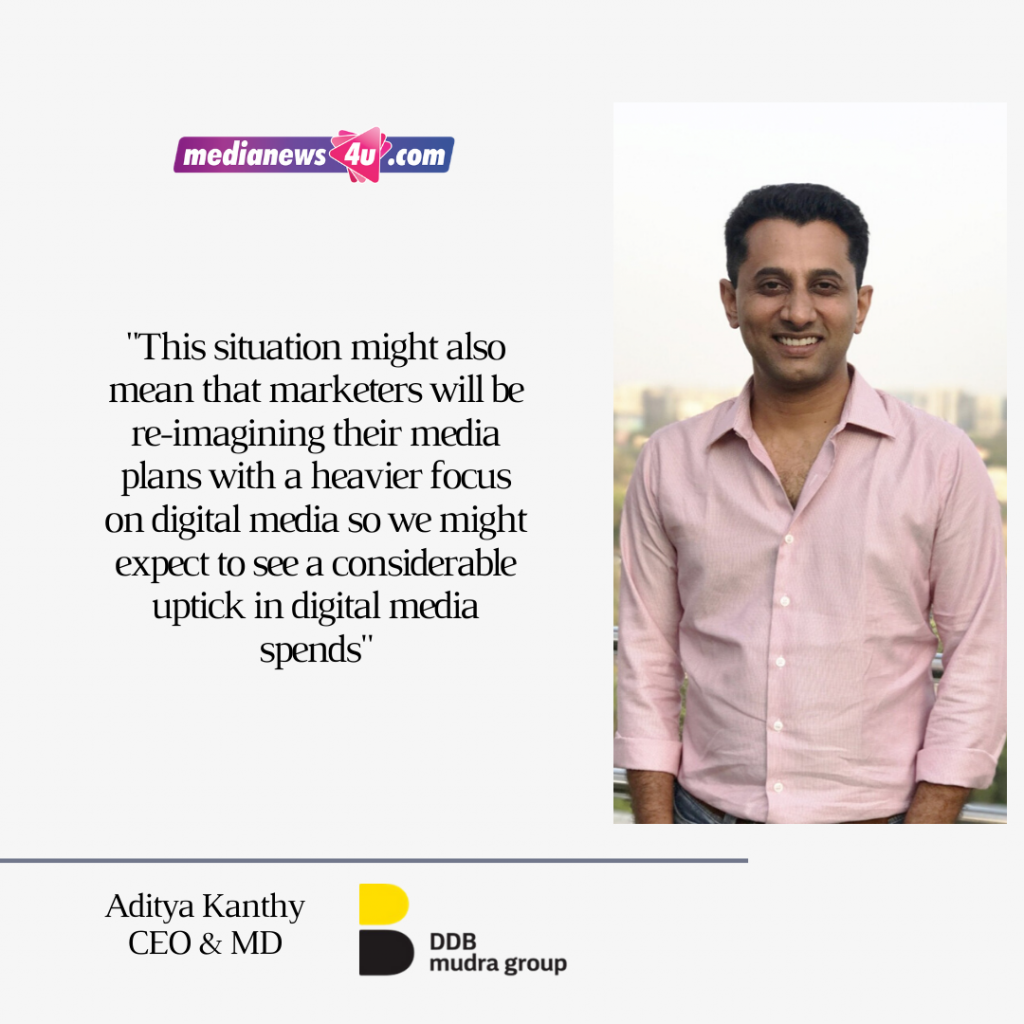
What is that one special mantra you want to give to the millennials who are looking at advertising as a career?
Regardless of the generation, young people have always been defined by their curiosity, their fearlessness when it comes to embracing change and facing failures, their sense of adventure and an inherent desire to engage with the world meaningfully. This is the energy that advertising has always thrived on and which makes advertising work – a willingness to change, the courage to challenge things, a desire to make an impact and drive culture. Young people make us better and they keep us from growing complacent. So, I think rather than giving advice, it is up to us to embrace their energy and the role they play in defining creative culture. All I would say to them is that the world will always welcome fearless new ideas, all the more so now, and there is no better place to start than in the advertising.
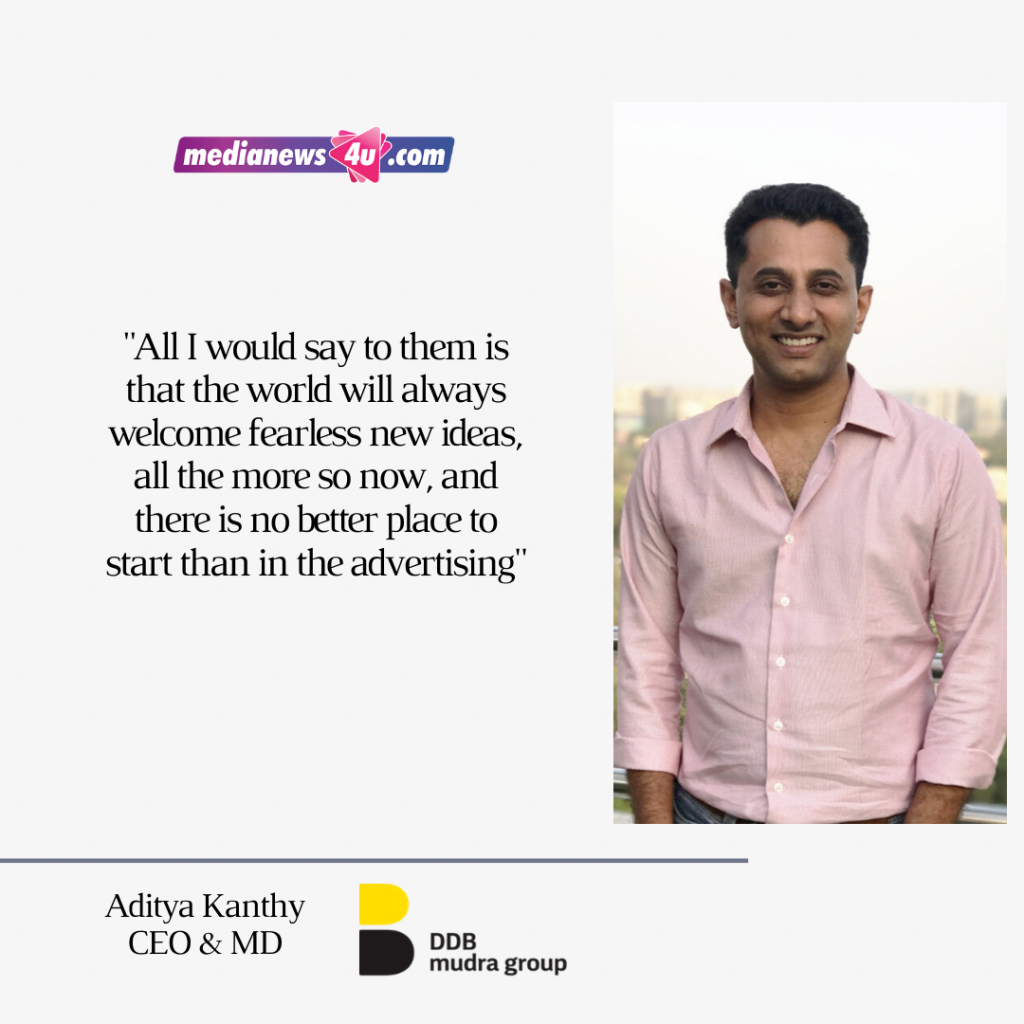
Post-Covid what would be your advice to your clients on ways to do effective communication?
I think we will see a return to the basics – work that is built on strong insights and emotional storytelling. This is something DDB has always believed in – that growing brands requires giving them an Emotional Advantage and I believe that this is extremely important now. Our need for human connection and for the simple pleasures that we had taken for granted is now heightened along with our collective feelings of helplessness. We will see work which is empathetic, which celebrates the small joys of life like our work on Kwality Wall’s ice-creams which celebrates the happiness that a small action like eating an ice-cream can bring to people living in isolation, as well as purpose-driven work. The crisis has also laid bare the deep divides in our society, as well as our own privilege and brands, need to be sensitive to that moving forward.
Communication shapes culture as much as it is shaped by it. The truth is that this crisis has brought about shifts in culture and these changes will get normalised. Our strategy teams have been doing some interesting work around this – we have published a series called COVID Chronicles which looks at the pandemic’s impact on how we look at our identity, at food, education, leisure and gender. It is up to us to understand what these shifts mean for our brands and the people who interact with them and to bring that understanding to bear in the communication that we develop.
